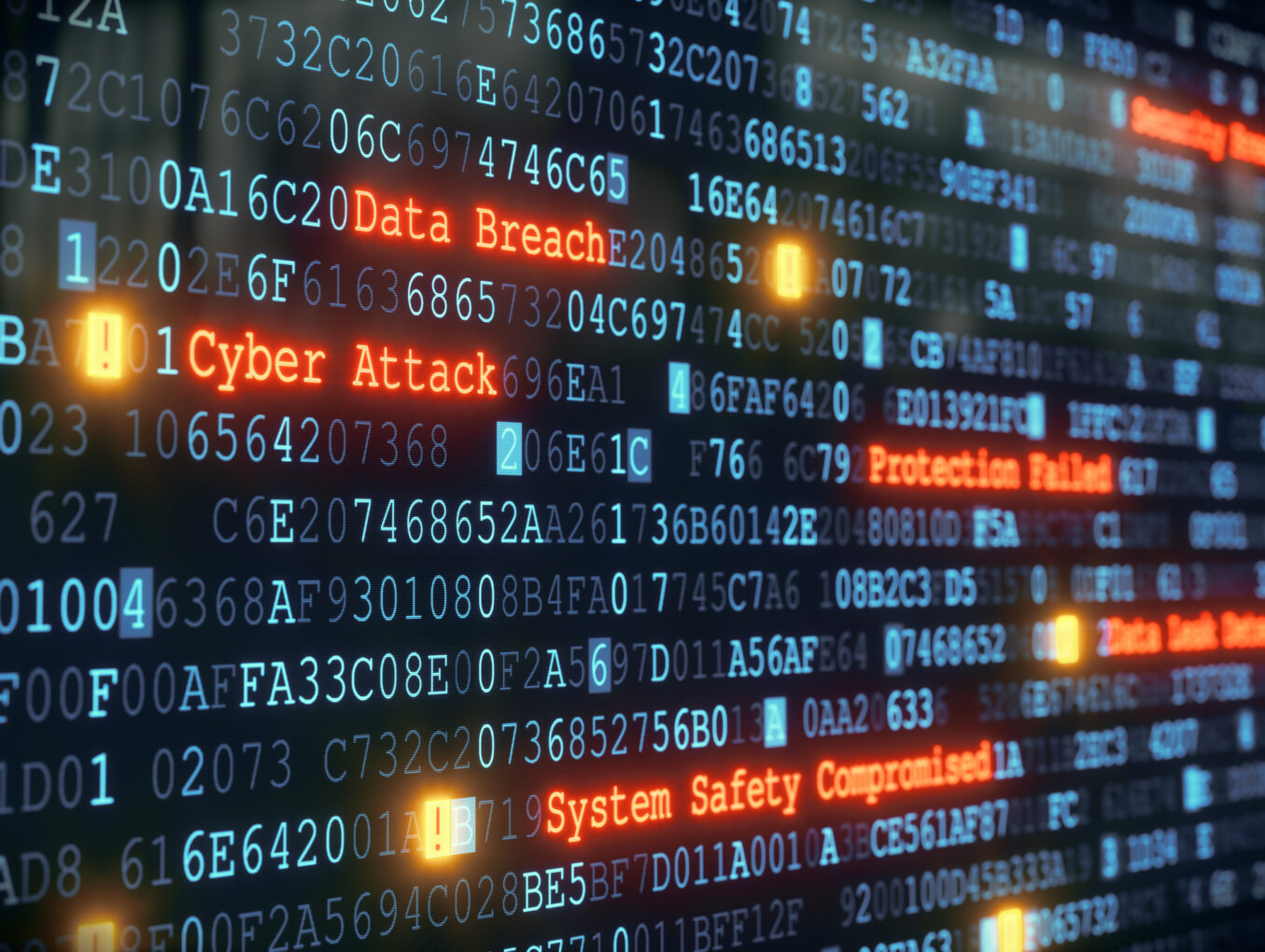Ten ways to protect your company from cyber-attacks.
When it comes to protecting your company from would-be hackers and cyber criminals, there is no silver bullet or one-size-fits-all solution. The best defense is a combination of tactics—software, training, and best practices tailored to the protection of your network. Here, we review ten ways you can protect your company from cyber-attacks.
– – – – – – – – – –
Have an Established Response Plan in Place
In today’s digital landscape, cyber-attacks pose a significant threat to businesses of all sizes. That’s why having an established response plan is paramount for protecting your company from these ever-evolving threats. A response plan outlines the steps your organization will take in the event of a cyber-attack, ensuring a swift and coordinated response. This proactive approach minimizes the potential damage, reduces downtime, and helps maintain business continuity
A well-prepared response plan instills confidence among employees, customers, and stakeholders, demonstrating your commitment to cybersecurity. It also enables your team to act decisively under pressure, mitigating financial losses and reputational damage. Additionally, regulatory requirements often mandate having an incident response plan in place, ensuring compliance, and avoiding hefty fines.
In essence, investing time and resources into developing and regularly updating your response plan is not just a precautionary measure—it’s a critical component of your company’s overall cybersecurity strategy.
– – – – – – – – – –
Conduct Regular Security Audits
Regular security audits, such as those provided by Axis Computer Networks, are essential for safeguarding your company from cyber-attacks in today’s digital landscape. These audits provide a comprehensive assessment of your organization’s security posture, identifying vulnerabilities and weaknesses before they can be exploited by malicious actors.
By conducting regular security audits, you can stay one step ahead of cyber threats, proactively addressing potential risks and strengthening your defenses. These audits help ensure that your security measures are up to date and aligned with industry best practices, providing peace of mind for both your team and your clients.
Security audits can uncover gaps in compliance with regulatory requirements, helping you avoid costly fines and legal consequences. By investing in regular audits, you demonstrate your commitment to cybersecurity and protect your company’s reputation.
– – – – – – – – – –
Monitoring Network Activity
Monitoring network activity is a crucial aspect of protecting your company from cyber-attacks in today’s digital age. By actively monitoring network traffic, you can detect suspicious behavior and potential security breaches before they escalate into full-blown attacks.
Regular monitoring allows you to identify anomalies in network traffic patterns, such as unusual spikes in data usage or unauthorized access attempts, which could indicate a cyber threat. By promptly detecting these signs, you can take immediate action to mitigate the risk and prevent further damage to your organization.
Additionally, monitoring network activity enables you to maintain visibility and control over your digital infrastructure, ensuring that security measures are effectively implemented and enforced. This proactive approach not only enhances your company’s overall security posture but also helps to safeguard sensitive data and protect your reputation.
– – – – – – – – – –
Limit Access to Data
Limiting access to data is a critical strategy for protecting your company from cyber-attacks. By implementing strict access controls, you reduce the risk of unauthorized individuals gaining access to sensitive information, thereby minimizing the potential impact of a security breach.
Restricting access to data ensures that only authorized personnel have the permissions necessary to view, modify, or delete sensitive information. This helps prevent insider threats and external attacks that exploit vulnerabilities resulting from excessive access privileges.
Moreover, limiting access to data enhances accountability within your organization, as each user’s actions can be traced and monitored more effectively. This makes it easier to detect and respond to suspicious activities, mitigating the risk of data breaches and other security incidents.
– – – – – – – – – –
Using Antivirus and Anti-Malware Software
Utilizing antivirus and anti-malware software is essential for safeguarding your company from cyber-attacks. These tools serve as a crucial line of defense against a wide range of malicious threats, including viruses, malware, ransomware, and spyware.
Antivirus and anti-malware software work by continuously scanning your systems for suspicious activity and malicious code, identifying, and quarantining potential threats before they can cause harm. By deploying robust antivirus solutions, you can detect and neutralize cyber threats before they compromise your organization’s sensitive data or disrupt your business operations.
Also, antivirus and anti-malware software provide real-time protection, automatically updating their threat databases to guard against emerging cyber threats. This proactive approach ensures that your company’s digital infrastructure remains secure and resilient in the face of evolving attack vectors.
– – – – – – – – – –
Backup Data Regularly
Regularly backing up data is paramount for protecting your company from cyber-attacks. In today’s digital landscape, where threats like ransomware can encrypt or delete valuable information, having secure and up-to-date backups ensures that you can quickly recover critical data in the event of an attack.
By implementing a robust data backup strategy, you create a safety net that minimizes the impact of cyber-attacks on your business operations. Whether it’s accidental deletion, hardware failure, or a malicious cyber-attack, having backups enables you to restore your systems and resume normal operations with minimal downtime.
Backing up data regularly provides peace of mind, knowing that your company’s valuable assets are protected against unforeseen events. It also demonstrates a proactive approach to cybersecurity, enhancing your organization’s resilience and readiness to face cyber threats head-on.
– – – – – – – – – –
Implement a Firewall
Implementing a firewall is essential for protecting your company from cyber-attacks in today’s interconnected world. Acting as a barrier between your internal network and external threats, a firewall monitors and controls incoming and outgoing network traffic based on predetermined security rules.
By filtering out potentially harmful traffic and unauthorized access attempts, a firewall helps prevent malicious actors from infiltrating your network and compromising sensitive data. It serves as a critical line of defense, blocking known threats such as malware, viruses, and phishing attempts before they can breach your company’s systems.
A firewall provides visibility into network traffic, allowing you to monitor and analyze incoming and outgoing connections for signs of suspicious activity. This proactive approach to network security enables you to identify and respond to potential threats in real-time, mitigating the risk of cyber-attacks and protecting your organization’s digital assets.
– – – – – – – – – –
Keep Software up to Date
Keeping software up to date is crucial for protecting your company from cyber-attacks. Software updates often include patches for known vulnerabilities and security flaws, which cybercriminals can exploit to gain unauthorized access to your systems. By regularly updating your software, you ensure that these vulnerabilities are addressed promptly, reducing the risk of security breaches and data compromises.
Outdated software is more susceptible to malware infections and other cyber threats. Hackers often target outdated software because they know it lacks the latest security enhancements and patches. Therefore, by staying current with software updates, you create a stronger defense against potential cyber-attacks.
Additionally, maintaining up-to-date software demonstrates your commitment to cybersecurity and helps build trust with customers, partners, and stakeholders. It shows that you prioritize the protection of sensitive information and take proactive measures to safeguard your company’s digital assets.
– – – – – – – – – –
Strong Passwords and Multi-Factor Authentication
Strong passwords and multi-factor authentication (MFA) are essential for protecting your company from cyber-attacks. Passwords act as the first line of defense against unauthorized access to your company’s systems and data. By using complex passwords that include a combination of letters, numbers, and special characters, you make it harder for cybercriminals to guess or crack them.
However, even strong passwords can be compromised, which is why implementing multi-factor authentication is crucial. MFA adds an extra layer of security by requiring users to provide additional authentication factors, such as a one-time code sent to their mobile device or biometric verification, in addition to their password. This significantly reduces the risk of unauthorized access, even if a password is stolen or compromised.
By combining strong passwords with multi-factor authentication, you create a robust defense against cyber-attacks, safeguarding your company’s sensitive information and maintaining the integrity of your digital assets.
– – – – – – – – – –
Train Employees on Cyber-Security Awareness
Training employees on cybersecurity awareness is essential for protecting your company from cyber-attacks. Human error is one of the leading causes of security breaches, with phishing scams and social engineering tactics targeting unsuspecting employees. By educating your workforce on common cyber threats, best practices for identifying suspicious emails or links, and proper handling of sensitive information, you empower them to become the first line of defense against cyber-attacks.
Cybersecurity training helps employees understand the importance of maintaining strong passwords, practicing safe browsing habits, and adhering to company security policies. It also fosters a culture of vigilance and accountability, where every team member takes responsibility for safeguarding company data and systems.
Ultimately, investing in cybersecurity awareness training not only strengthens your company’s defenses but also helps create a more resilient and security-conscious workforce, reducing the likelihood and impact of cyber-attacks on your organization.

